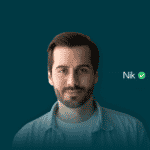Find
PHP Developers
and Elevate Your Project.
With dynamic web application experts, your project will be a complete success. Companies rely on the experience of PHP Developers to develop websites, maintain applications and program plug-ins.
Find
PHP Developers
and Elevate Your Project.
With dynamic web application experts, your project will be a complete success. Companies rely on the experience of PHP Developers to develop websites, maintain applications and program plug-ins.







Available PHP Developers
Hear From Our Clients
Since the beginning of our collaboration, the highly qualified team at ElevateX has been significantly involved in the development of our apps. With a proactive, communicative, and fully committed way of working, ElevateX has been laying an important foundation for the success of our projects.
ElevateX is an ideal partner for us.
I have been working with "ElevateX" since mid-2019. After a time consuming search for a flexible solution for Android and iOS development I found a professional and reliable partner.

We had an excellent experience working with Ralf (CTO of ElevateX) on several IoT projects for our connected app features based on Bluetooth LE. The team is technically very strong, proactive, independent, and committed to the success of the project all the way.

No matter how complex the problem, the highly skilled team of engineers at ElevateX always delivers beyond our expectations. Their ability to prototype and ship high-quality apps on time is outstanding.
Axel BurgbacherCEO @ Sytrax
Right from the beginning of a time critical and crucial project Ralf of ElevateX, not only took end to end responsibility for his user stories, but he also helped other developers where help was needed. Ralf is dedicated, flexible and full of getting it done attitude. One of the best developer I have worked with. Thank you for all the hard work. Your contribution and commitment made the project a big success, looking forward to working with you in the future.
Viraj TankMobile Team Lead @ Mercedes-Benz Innovation Lab
Hiring
PHP Developers
Made Fast and Simple
Free Needs Assessment
In a personal, free needs assessment, we will find a solution to your needs.
Receive our Recommendations
Pick your perfect candidate from a pool of pre-selected IT professionals.
Start Working on Your Product
Time to elevate your product. Meanwhile, ElevateX assists you during the whole project.
Why ElevateX

Simplicity & Speed
No fuzz. Simple, fast processes you’ll love. – And no surprises!

Tailor-Made Matching
Work with PHP Developers that exactly match your requirements.

Innovative & Future-Proof
Be at forefront of the future of work. Tap into the expertise of our IT Professionals to fuel your innovation.

Verified & Checked PHP Developers
Less time worrying, more time creating. Work with verified and tested PHP Developers.
PHP Developers Are Highly-Demanded. Future-Proof Your Team.
Frequently Asked Questions
What are
PHP Developers
?
PHP Developers exist in both the front-end and the back-end. They plan dynamic web applications, such as plug-ins and implement them independently.
How do I hire
PHP Developers
?
In a personal meeting we first determine your needs and the skills your perfect PHP Developer should have. In the second step, we find a customized solution. From a pre-selection of experts, you decide on the best candidate. Then you can get started. ElevateX supports you throughout the entire project to guarantee long-term success.
How long does it take to hire
PHP Developers
with ElevateX?
Depending on your technical requirements and availability, you can start working with the PHP Developer as soon as 48 hours.
PHP Developers Are Highly-Demanded. Future-Proof Your Team.


